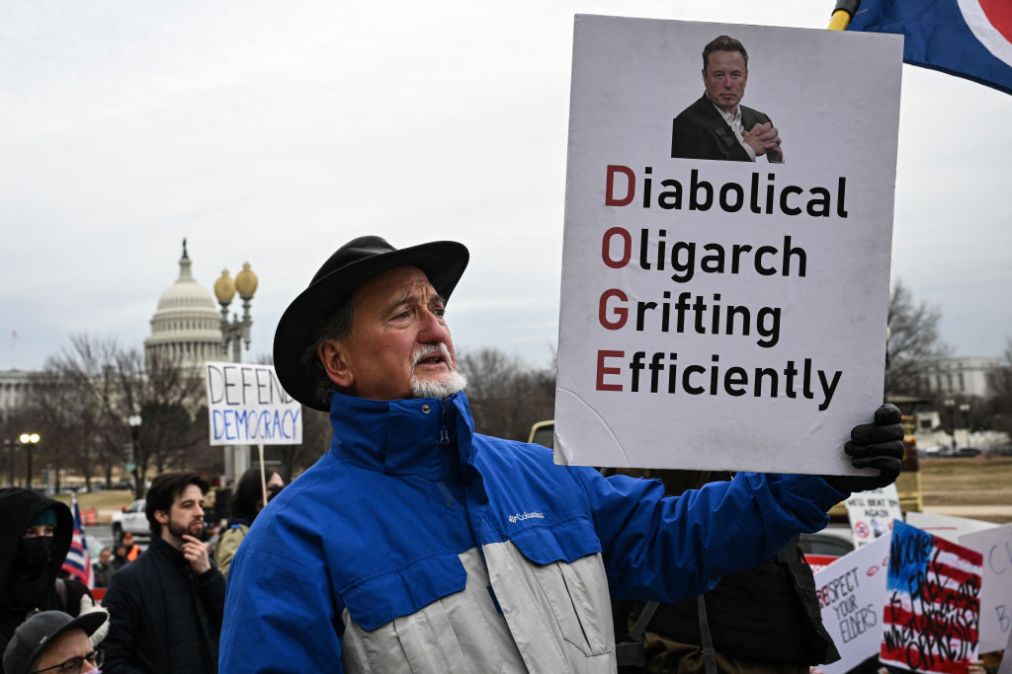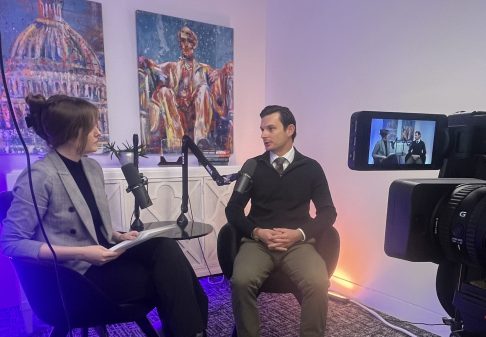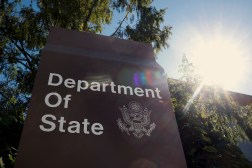Appeals court lifts block on DOGE access to Treasury, Education, OPM systems

A district court judge’s block on DOGE from accessing personally identifiable information housed in Office of Personnel Management and Treasury and Education department systems was vacated by a federal appeals court panel Tuesday, opening the door for new data dives by representatives with the Elon Musk-created group.
Writing for the majority, Judge Julius Richardson, a Trump appointee, said the district court had “abused its discretion” by issuing a preliminary injunction that kept DOGE members away from OPM, Treasury and Education data.
That ruling, Richardson wrote, falsely concluded that the plaintiffs — the American Federation of Teachers, the International Association of Machinists and Aerospace Workers, the International Federation of Professional and Technical Engineers, the National Active and Retired Federal Employees Association, the National Federation of Federal Employees, and six military veterans — were likely to succeed on the merits.
Richardson said the full consideration he and Judge G. Steven Agee — a George W. Bush appointee — had given to the case in recent months “has only deepened” their “preexisting concerns” regarding the plaintiffs’ likelihood of success.
Among the issues Richardson and Agee raised was a potential lack of standing for the plaintiffs, who they said failed to demonstrate harm that would be caused by DOGE access to their PII.
“The harm that might come from this generalized grant of database access to an additional handful of government employees — prone as they may be to hacks or leaks, as Plaintiffs have alleged — seems different in kind, not just in degree, from the harm inflicted by reporters, detectives, and paparazzi,” Richardson wrote.
The judges also took issue with plaintiffs’ contention that having their data exposed to DOGE would violate the Privacy Act and the Administrative Procedure Act, citing “a dearth of case law on how the Privacy Act intersects with the APA.”
“Finally, even if Plaintiffs could overcome the threshold issues above, it appears difficult for them to establish a Privacy Act violation,” Richardson wrote. “The Privacy Act allows records to be shared intra-agency with ‘those officers and employees of the agency … who have a need for the record in the performance of their duties.’ In other words, the Privacy Act does not prohibit sharing information with those whose jobs give them good reason to access it.”
The majority also cited the Supreme Court’s June ruling involving Privacy Act and APA claims against the Social Security Administration and its DOGE liaisons, a decision that opened SSA records back up to the Musk disciples.
In the dissenting opinion, Judge Robert King, a Clinton appointee, said the majority is creating a “heightened standard” for assessing plaintiffs’ likelihood of success on the issues and the district court “did exactly what it was obliged to do.”
DOGE’s forays into various federal agency IT networks have been the subject of significant legal action since the beginning of the Trump administration. Additional DOGE-linked litigation includes attempts to halt access to Treasury systems that contain taxpayers’ personal data and APA-related claims regarding the PII of employees with the Consumer Financial Protection Bureau and the departments of Labor and Health and Human Services.
Alexandra Reeve Givens, CEO of the Center for Democracy & Technology, said in a statement that the appeals court’s decision “threatens our country’s bedrock values around safeguarding privacy,” continuing “a disturbing effort by the federal government to amass information about people and overturn longstanding privacy norms under the guise of fighting fraud, waste, and abuse.”
“Now,” she added, “the courts are giving this Administration the greenlight to continue playing fast and loose with all of our most sensitive information.”
This story was updated Aug. 12 with comments from the CDT’s CEO.






